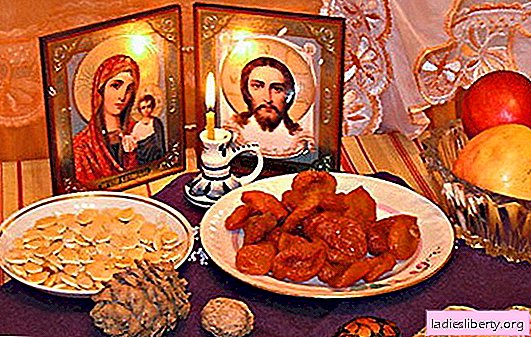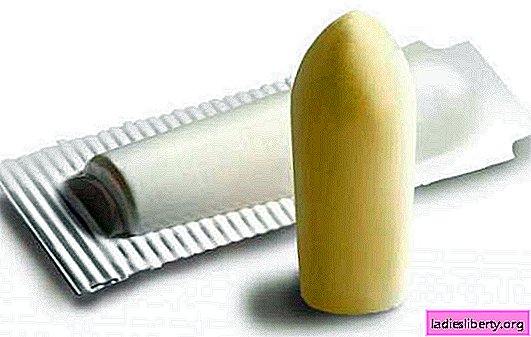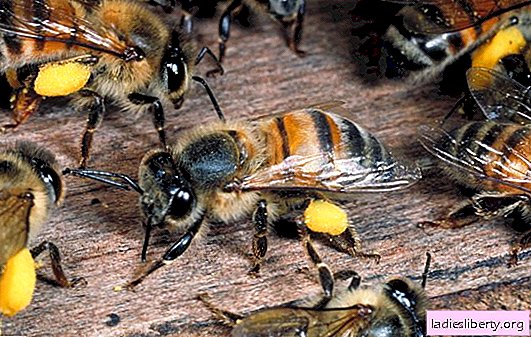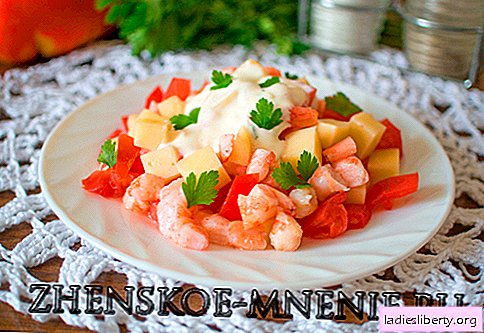
Any post, if held correctly, only benefits the body.
However, until now, many perceive the post as a kind of punishment, which is fundamentally wrong.
If you know how to eat fast, then this period will fly by for you unnoticed.
In addition, you will be surprised how many interesting and varied dishes can be prepared in fasting.
Orthodox fasting - what is it?
Fasting is a temporary, voluntary restriction or a complete rejection of fast food, as well as the fight against your passions. At this time, you need to refrain not only from fast food, but also from visiting entertainment events and institutions of this kind. This is our gratitude to God for his great Sacrifice. Fasting is a kind of treatment that is designed to pacify and lighten the body, as well as to disarm passions and curb desires. Today, more and more people are trying to keep the post, but, unfortunately, many perceive it as a diet, which is fundamentally wrong. Keeping a post is much more than just giving up food. As John Damascene wrote: "If fasting was all about food, then the cows would be holy."
In the post, as in everything else, you need to know the measure. No need to rush from one extreme to another. Before you begin fasting, consult your confessor or priest. And of course, fasting should not be a short way to get to the hospital.
In Orthodoxy, there are four multi-day posts:
Great, Petrov, Assumption and Christmas fast.
Wednesday and Friday.
One-day posts:
• January 18 - Epiphany Eve.
• September 11 - The Beheading of John the Baptist.
• September 27 - Exaltation of the Holy Cross.
Posts are appointed on the eve of any holiday or in honor of it.
Great Lent gives an opportunity to every Orthodox person to prepare for the Easter holiday. Christ prayed in the wilderness for forty days, after which he was betrayed and martyred on the cross, thereby saving the whole human race from sin. The Orthodox, observing this post, seem to go all this way together with Christ. This is one of the most rigorous posts.
When the Holy Spirit descended on the apostles, they dispersed to preach the gospel throughout the world, constantly in labors, prayer and fasting. In honor of this event and was appointed Petrov Post. After all, every Orthodox person should preach the Orthodox faith with his life.
Assumption Post dedicated to the Virgin. He allows all Orthodox to prepare for the great feast of the Assumption of the Blessed Virgin Mary, which, preparing to meet her Son, prayed and fasted a lot. This post is equal in rigor to the Great.
Christmas post - the last of the year. It was established so that every Orthodox cleanses his soul by fasting, repentance and prayer. We must meet the Savior who has come into the world with a pure soul and heart to show our desire to follow the teachings of Christ.
How to keep a post: rules, behavior, church attendance
There are several basic rules that you must follow in order to understand how to keep the post right.
1. Before you start fasting, you need to understand that abstinence from food is a tool with which a person struggles with his sins. It is necessary to abstain from food, and not to exhaust yourself and your body. You should soberly assess your strengths depending on your preparation for fasting and health status.
2. Fasting requires gradual entry and preparation. Start preparing for it by abstaining from fast food on Wednesdays and Fridays throughout the year.
3. For those who want to fast for the first time, it is recommended that you first talk with the priest, tell him about your physical and mental condition and ask for a blessing for fasting.
4. It is advisable to attend all church services that are performed during fasting. However, it is quite difficult for a modern person to observe this rule, especially for those who constantly work. But still, try to attend Saturday night service and, of course, Sunday services.
5. During the Great, and now other fasts, in the churches the sacrament of Unction is performed, which no Orthodox person should miss, deciding to hold the fast. The timing of this sacrament must first be known, since in different churches it is held at different times. After the rite of Unction, at the first opportunity it is necessary to take communion.
6. A simple abstinence from food without prayer will not bring benefits to the soul. Moreover, it can be harmful if a person, refraining from fast food, begins to ascend over others. An Orthodox person during fasting should devote himself to prayer, abstinence from passions and vices, repentance, good deeds, forgiveness of insults, watch TV less and attend entertainment events.
7. Recently, such an assertion has begun to sound more and more often that supposedly it’s not necessary to refrain from fast food, the main thing is to do good deeds and not offend anyone. It may be true, but it is impossible to humble one’s spirit without measuring the body. As mentioned above, do not go from one extreme to another. Abstinence and good deeds during fasting should be inseparable.
8. Fasting - time of reconciliation. Try to build relationships with your friends and family if you were in conflict before.
9. In addition to abstinence in food, every Christian must concentrate on good deeds. To help everyone in their strength. It can be not only a material sacrifice, but also your work and care for those who need it.
10. Everyone knows about their weaknesses. Fasting is just the time when you can start a fight with them. For example, try to overcome bad habits. Of course, this cannot be done without prayer. Devote prayer and gospel reading to every free minute.
How to eat fasting: when and what can you eat?
There are several types of posts:
- strict post - refusal of any food and drink, except simple drinking water;
- xerophagy - the use of plant foods in kind, without exposing it to cooking;
- boiling food - it is allowed to eat plant food, having previously prepared it, but without seasoning with oil;
- eating boiled food with oil - allowed to cook plant foods with the addition of vegetable oil;
- eating fish - not only cooked plant foods are allowed, but also fish, seafood.
The church clearly defines what nutritional rules need to be followed on one day or another. Consider them in detail for each multi-day post:
1. Great Lent.
The first and Holy Week of fasting is the most strict fasting, only raw-eating without oil or a complete refusal of food is allowed.
Monday, Wednesday and Friday are raw vegetables.
Tuesday and Thursday are dishes without oil. Cooked dishes from vegetables, legumes, mushrooms and cereals.
Saturday and Sunday - the addition of oil is allowed. Cooked or steamed dishes.
Annunciation of the Blessed Virgin Mary - fish dishes are allowed.
Lazarev Saturday and Palm Sunday - fish caviar and boiled dishes with butter are allowed.
Good Friday - a complete rejection of food before the removal of the shroud.
2. Petrov post.
Throughout the post, with the exception of Monday, Wednesday and Friday, you can eat fish dishes.
Monday - cooking without oil. Hot dishes.
Wednesday and Friday - raw food eating.
On other days, you can cook with oil. Mushroom, vegetable, fish dishes and cereals.
Christmas of John the Baptist - fish dishes are allowed.
3. Assumption post. The duration of the fast is only two weeks, but in severity is equal to the Great.
Monday, Wednesday, and Friday are raw eating.
Tuesday and Thursday - cooking without oil. Cooked cereals, legumes and mushrooms.
Saturday and Sunday - cooking boiled dishes with butter.
Transfiguration of the Lord - fish dishes are allowed.
4. Christmas post. Until December 19, the rules for eating are the same as the rules in the Petrov Post.
During the holidays, St. Nicholas and the Entry into the Church of the Blessed Virgin Mary - fish dishes are allowed.
After December 19th and before Christmas, fish dishes can only be eaten on Saturdays and Sundays.
Fish is prohibited during the last week of fasting.
On Wednesday and Friday, Orthodox fasting, recalling the betrayal of Judah and the martyrdom of Christ.
Of course, it is very difficult to observe all these rules, especially for those who first decided to hold a post. Therefore, before each post it is necessary to talk with the priest and take a blessing from him.
Products that can not be consumed on any fasting days:
- any meat and offal;
- animal fat, margarine and butter;
- eggs;
- dairy and dairy products;
- mayonnaise;
- fish and seafood (except for certain days when it is allowed).
Products that are allowed to use in the post:
- fruits and vegetables;
- greenery;
- honey;
- mushrooms;
- vegetable oil;
- cereals and cereal flakes;
- spices and spices;
- bean;
- nuts;
- Soy meat.
As you can see, during the fasting there is a fairly large selection of products from which you can prepare many tasty and healthy lean dishes.
How to fast in Lent: who can allow concessions
There are certain categories of people who are allowed some concessions in fasting, or do not recommend fasting at all. These categories include:
1. Children under 7 years of age. At this age, the body is actively formed, so do not exclude fish and meat from the child’s diet. You can replace some of these products with vegetable proteins: buckwheat, legumes, nuts and mushrooms.
2. Pregnant and lactating. Women during pregnancy and lactation are allowed to eat eggs, dairy products and fish.
3. People who have had serious illnesses. To restore strength, such people need amino acids and fats.
4. People suffering from chronic diseases.
5. Travelers and people who work hard physically.
If you are fasting for the first time, you can give yourself small indulgences by consulting a priest before this.
If you didn’t hold back the post: what punishment should you assign yourself?
This question torments those who tried to keep the post, but at some point broke down. In fact, only your priest can punish you for this. He may order you to read the Penitent Canon for several days or a specific job, for example, caring for the elderly or sick people. That is, by some kind deeds to atone for this sin.
In fact, fasting is very individual. Even if you refuse, for example, only meat, this is already good. After all, one person has the willpower to immediately hold a strict post, and the other will not be able to, and he will begin to complain. Today you will refuse meat, and on the next post you already refuse milk. If it’s easier for you, you can gradually refuse from fast food.
Calendar of posts for 2016
Lent: from March 14 to April 30.
Petrov post: from June 27 to July 11.
Assumption post: from August 14 to 27.
Christmas post: from November 28 to January 6.
Every Wednesday and Friday except Solid Weeks.
Now you know how to fast. Begin your feat by fasting on Wednesdays and Fridays. Today on the Internet you can find a lot of interesting recipes for fasting days. And remember that simply abstaining from food, without restricting yourself to anything else - this is not a post, but a diet! Enjoy your post!











